Taking notes while reading
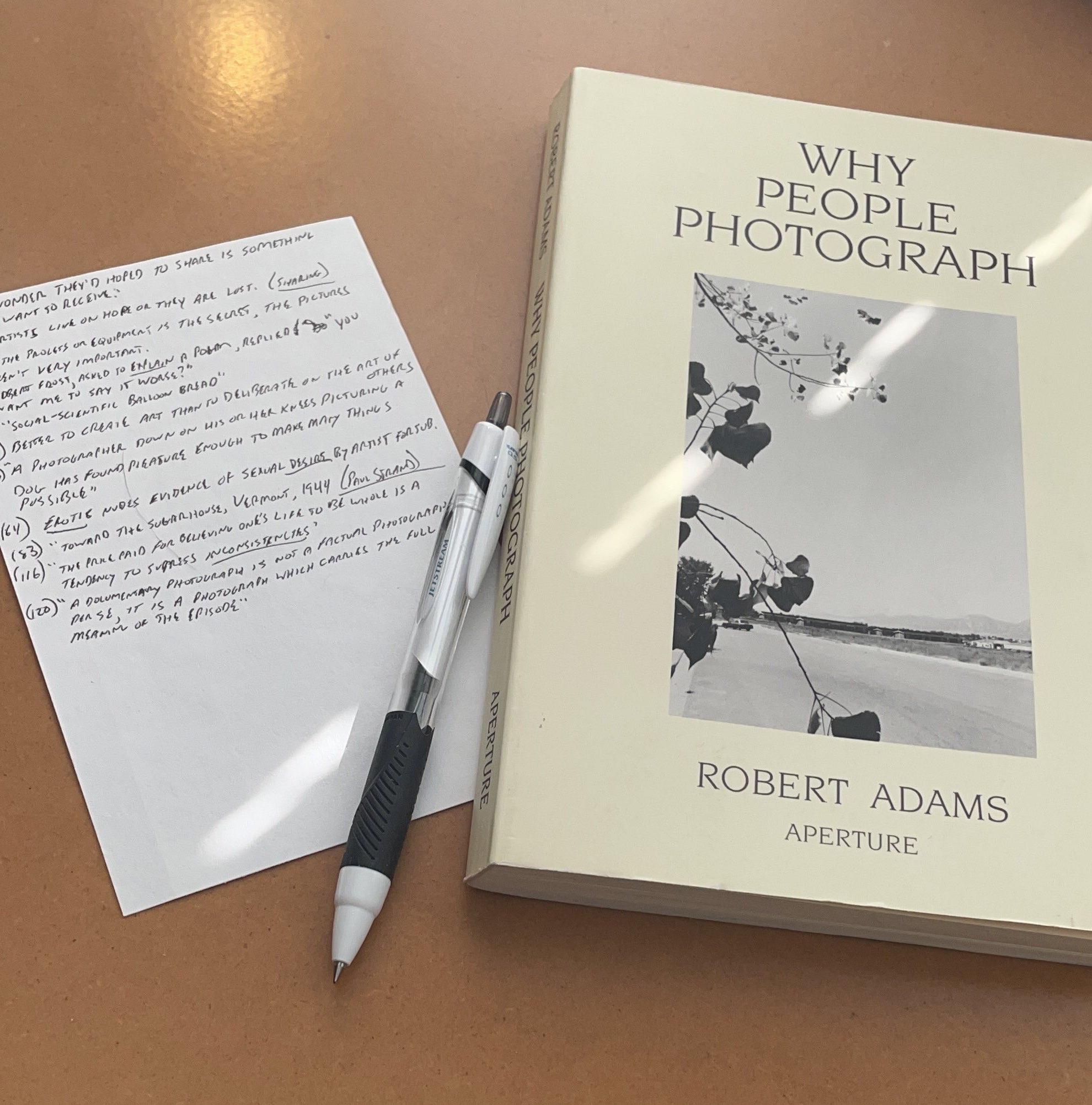 Reading notes for ’Why People Photograph
Reading notes for ’Why People Photograph
In a recent post, My Antinet and Barthes’ “Camera Lucida”, I wrote about having shelves filled with books that I remember nothing about. Seems like a waste, no?
Writing notes (by hand) while reading new books has completely changed the way I read and I am finding many benefits: More deliberate consumption, better recall, and a physical residue of the things I’ve read.
As I read, I find myself looking for things to “keep”. I write brief keywords, quotes, and short phrases as references on index cards. After completing a book, I re-read the notes and, if something triggers further interest, I re-visit the referenced pages and make longer notes on separate cards. Lots of people do something similar, but this is what I do and it’s been a great help.
(I know this is all very “Zettelkasten-ey”, but I’m trying to avoid using trendy, sound-smart words for what’s basically just a box of notes.)
Sold: Leica M6
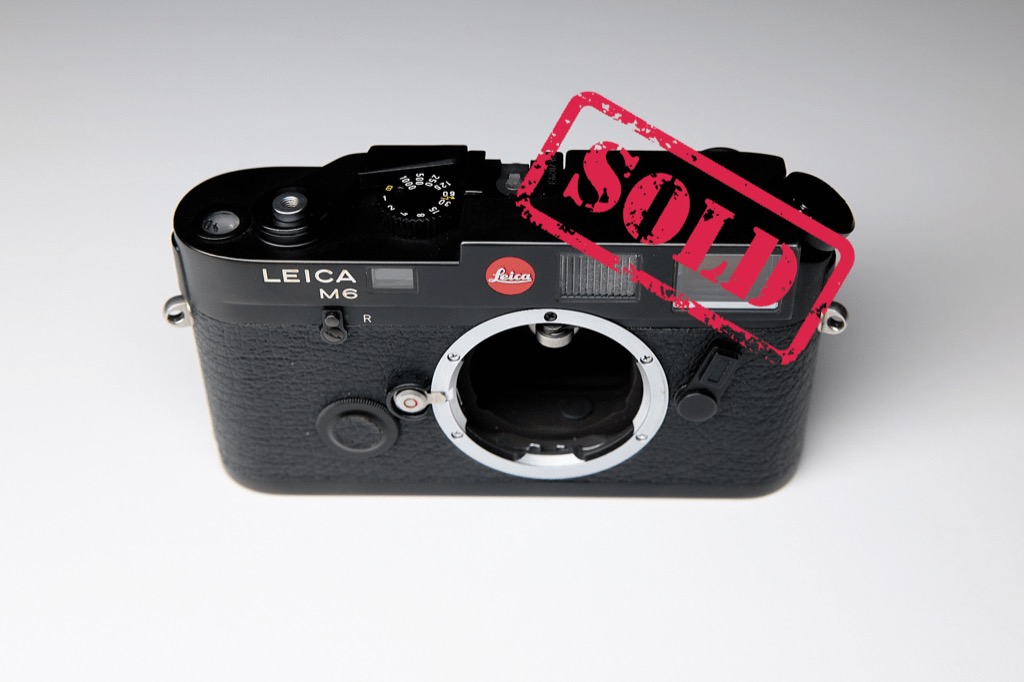 Leica M6
Leica M6
Long story, short, I sold my precious Leica M6 (Classic). I could no longer justify having two modern Leica M cameras, so I decided to keep the beautiful MP and pass the M6 on to someone else. I’m sure I’ll regret this. (It’s the second time the camera has been sold, but the previous buyer returned it, for spurious reasons). Onward!
Here’s the final frame I shot with the camera:
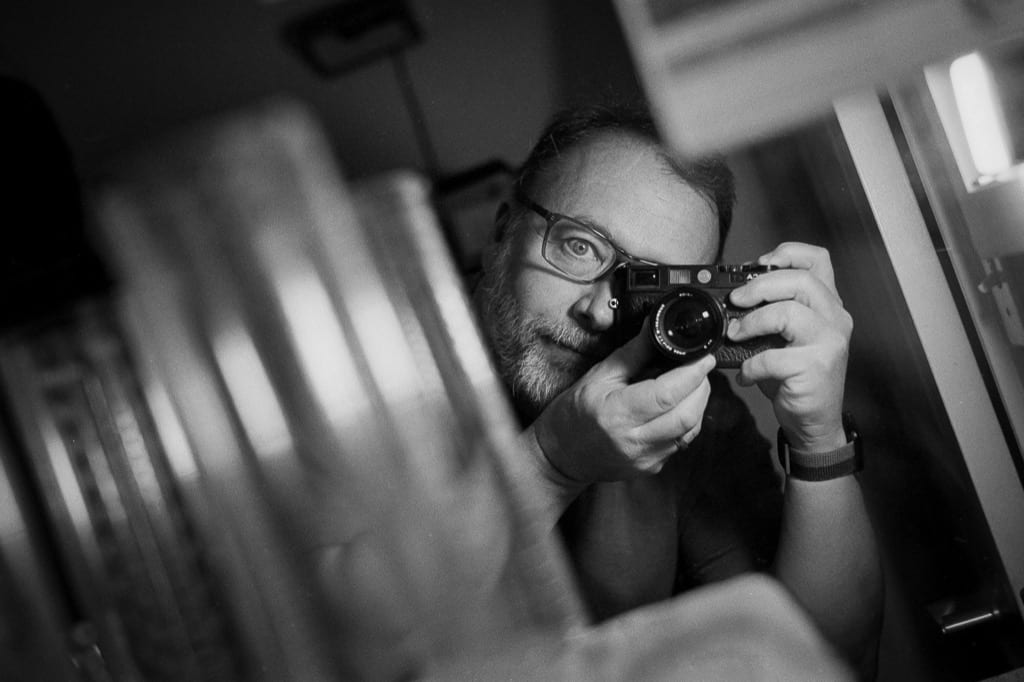 Self-portrait in mirror, Leica M6
Self-portrait in mirror, Leica M6
Using tags for org-refile-targets
Today I learned that I can use tags in Org files as a filter for org-refile-targets. My refile targets are mapped to org-agenda-files but limit them to only top-level headings in order to keep the list under control. Once in a while, though, I would like to make a more deeply nested heading available for refiling. I can do this by using (:tag . "refile"). Who knew?!
(setq org-refile-targets '((org-agenda-files :maxlevel . 1)
(org-agenda-files :tag . "refile")))Are there really only three things to photograph?
There are always cameras loaded with film scattered around my house. I don’t go out much, so sometimes I’ll pick up a camera and take a random photo just for the feel of it and to use up some film. These photos are almost always one of three things: Myself, my dog, or my desk/workspace.
Case in point, I recently finished the roll that’s been languishing in the M6 by taking the following mirror self-portrait.
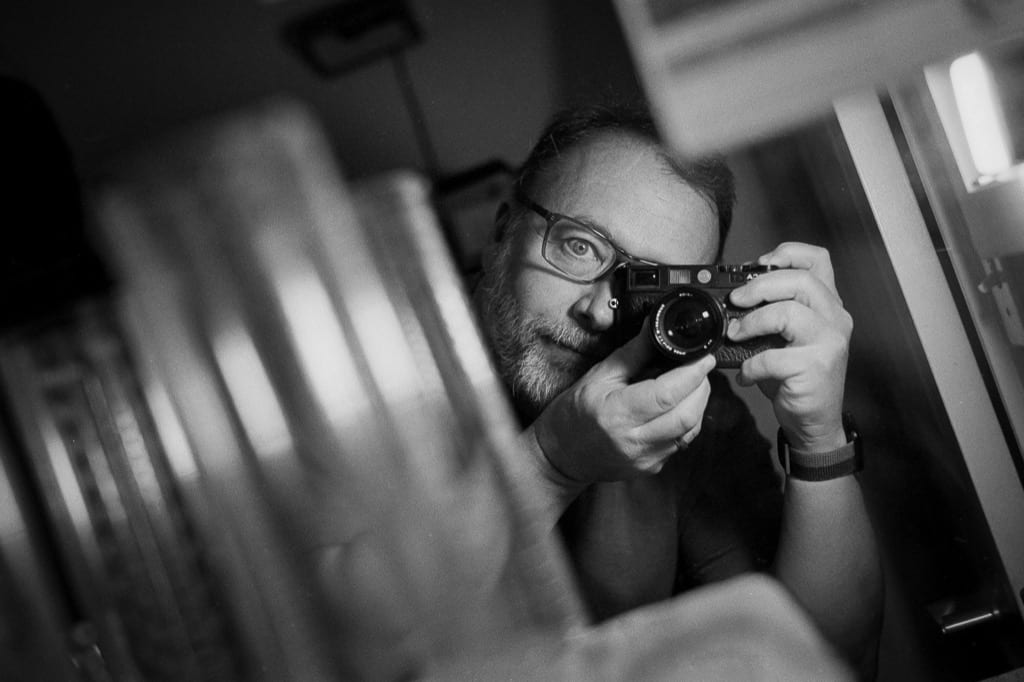 Self-portrait in mirror. Leica M6/50mm Summilux/HP5
Self-portrait in mirror. Leica M6/50mm Summilux/HP5
I actually like the photo. It’s playful and well-executed overall. But the rest of the roll? It’s chock full of shitty mirror self-portraits and random dog and workspace photos. I really do need to get out more.
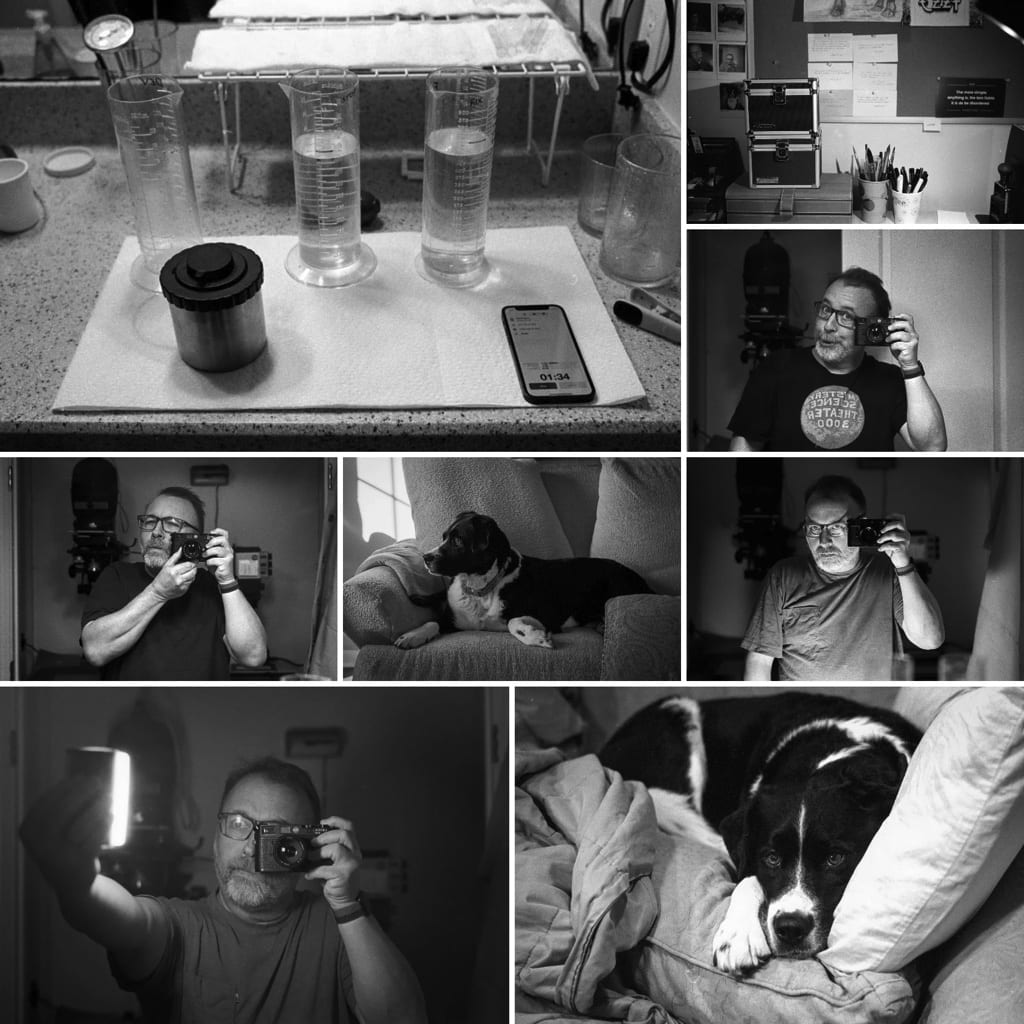
Things I can’t quit: Film photography and Emacs
I know that film photography and Emacs are completely unrelated, but I have been thinking about both of them quite a lot recently.
Since moving back to shooting film in 2003, I have regular thoughts of switching to all-digital again. It’s just easier. I have rooms full of “stuff” in support of film photography, and things would become so much faster and easier without all of that. A nice digital camera, a good RAW editor, an inkjet printer, and some hard drives, and I’m all set.
And yet, I still enjoy shooting film and have found it impossible to quit. I like how film looks, I enjoy working in the darkroom, and I love my Leica rangefinder cameras. Having binders full of negatives sitting on my shelves is a comfort to me. They’re real, you know? I prefer real things.
In a completely different arena, I would like to stop using Emacs for everything. The great benefit of Emacs, that it can be anything and do everything, is for me also its greatest drawback. I can’t stop futzing with it. And I can’t stop trying to use it for freaking everything all the time. I just need to write stuff and keep track of some tasks. Why then do I use it to read email, RSS feeds, Mastodon, and whatever other things I can shoehorn into what should be a simple text editor?
So, I frequently fire up Obsidian, BBEdit, Logseq, Roam, iA Writer, TheBrain, Tinderbox, and oh right, none of these does the things Emacs and Org-mode can do quite as efficiently and with so much flexibility. After a few days away, I end up back in Emacs and farting around with capture templates or trying to decide between Denote and Org-roam.
The truth is that I’ll probably always shoot film and I’ll probably always use Emacs. I just wish that I could convince myself of this, then move on and actually do something creative or useful with them.
The iPad as a diversion
I’m tired of computers. I spent hours today rummaging around my notes and trying to figure out if I should write some new thing in Emacs or Obsidian or Tinderbox or what? It’s confusing and frustrating, and I need a break.
I’m typing this on my iPad Pro using the Magic Keyboard. I won’t lie, the iPad is too limiting for me under nearly all circumstances. But that’s exactly why I need it right now. I’ve gotta stop tweaking and start doing something instead. That something might just be watching Netflix, but at least that’s not going to make things worse.
But should I have written this post using iA Writer instead? ☺️
UPDATE (2 days later): I’d be better off selling the iPad(s). They’re not a diversion, they’re a distraction. Putting an iPad into rotation forces me to use software and workflows that work on mobile and that’s always a reduction in capabilities for me. I should consider the iPad solely for consumption.
Eleventy and my Daily Notes
Somehow, for reasons unknown, I’ve rebuilt daily.baty.net using Eleventy.
It started when I struggled to make some tweaks to the site, which is (was) generated using Tinderbox. Tinderbox, being Tinderbox, is ridiculously powerful and flexible, but it wasn’t doing what I thought I was telling it to do. So I stepped away and started tinkering with its inspiration, my Drummer blog. For a hot minute, I considered going back to using Drummer, even though I worry about its longevity. Drummer is how blogging is supposed to work (at least in my head), so I started looking at it again.
Then Twitter decided to shut off its free API, which Drummer depends on for identity. Thankfully, Dave is working on a path around the Twitter problem, but in the meantime has temporarily shut down Drummer.
While I waited, I wondered if instead, I could make Hugo look and work like my Tinderbox blog, but I quickly realized that I’m never going to understand Hugo’s templating process/language enough to do anything clever with it.
What about Eleventy? I’d never really considered Eleventy but I know some people really like it. When I saw that they had recently announced the v2.0 (beta), I figured it was a good time to see what it was all about.
The short answer is that I like it! I found the basics much easier to grok than Hugo. I had a simple blog put together in a couple of hours. It was one of those incremental things where I experienced small, early wins, so I was encouraged to continue.
I pulled the (admittedly outdated) CSS and markup from my Tinderbox templates and shoehorned them into Nunjucks files. It was surprisingly easy, so I kept going and was so successful that within a few more hours I’d decided to go all-in and now daily.baty.net is running Eleventy. Good times!
Drummer and Twitter
Dave’s blogging tool, Drummer, will be affected by Twitter’s API rug pull.
I’ve maintained (on and off) a blog using Drummer since its release. Drummer thinks the way I do. Drummer was a direct inspiration for what is now daily.baty.net. I basically recreated the parts of Drummer I like but built it using Tinderbox and then later using Eleventy.
I sometimes consider going back to using Drummer, but I hesitate because I worry about it’s long-term viability. Dave’s got a lot of ideas and he doesn’t waste time dealing with the old ones. If Drummer ever becomes an “old idea” then I fear I’ll be left without any support. Dave sometimes struggles with support as it is, but zero is worse than a little.
Anyway, I’ll keep an eye on Dave’s progress and who knows, maybe Drummer will become A Thing for me again.
My Antinet and Barthes’ “Camera Lucida”
The first book I read with my Antinet in mind was “Camera Lucida: Reflections on Photography” by Roland Barthes. I’m not doing a book review here, but I wanted to say a few things about the process of reading with the goal “installing” notes into my Antinet.
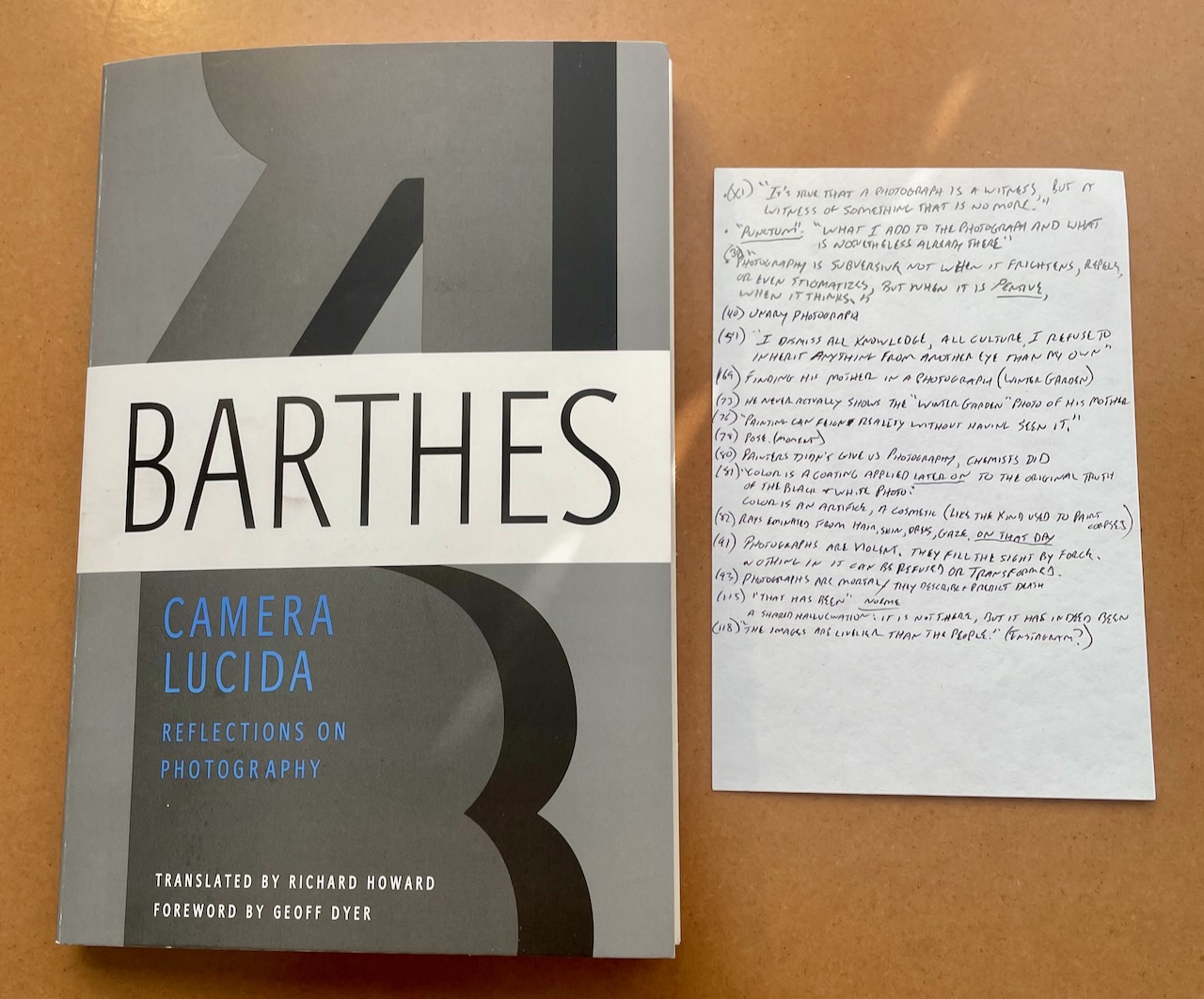 Camera Lucida and my bibcard
Camera Lucida and my bibcard
I’m not someone who needs a Zettelkasten. I’m not working on a book or paper or anything. I want to use what I’ve read. Even better, I’d like to integrate the things I’ve read with my own thoughts. I want to learn.
The problem for me has been that I don’t remember what I read. I have several bookshelves packed with books and I couldn’t tell you the first thing about what’s in most of them. It’s frustrating, and such a waste. I’m sure I must’ve gleaned something from all that reading, but what? And what can I actually do with it?
I have always believed that using an analog (pen and paper) process is better for thinking, but I’ve been so enamored with digital “Tools for Thought” the past few years that I’ve spent much of my time reading blog posts about “How to Take Smart Notes” using Obsidian or Roam or Emacs or what-have-you. All I have to show for it is a thousand text files and a useless bubble graph. I don’t need a “second brain” I need to better utilize the first one.
After reading Scott Scheper’s book, “Antinet Zettelkasten”, I was sufficiently inspired to go all-in with the Luhmann method, so I sat at my desk with “Camera Lucida”, a pen, and a blank 4x6” index card.
It was amazing. First, sitting at a desk while reading is a great idea because I didn’t fall asleep after three pages like I normally do. More importantly, I found myself reading with a goal. I was actively looking for things to remember, and writing them down. This was in contrast to my usual approach which is looking to “have read” the book. I filled my “bibcard” with quotes, references, and ideas from the book as I read it. These notes are meant to be processed and “installed” in my Antinet later, but even if I were to skip that part, I gleaned much more from the book than I normally would. I’m remembering more than from, say, highlighting passages in the Kindle. I’m telling you, there’s something to this whole paper thing! :).
I don’t know if my Antinet will ever amount to much more than a half-assed attempt at “Knowledge Management” but so far the simple act of creating it has paid dividends. I’m excited to see where it leads.
Roll-101 (Stylus Epic)
The little Olympus Stylus Epic is fond of missing focus and flaring. I also seem to have some kind of leak. But, it’s still a great little camera to have in my pocket.
 Self-portrait
Self-portrait
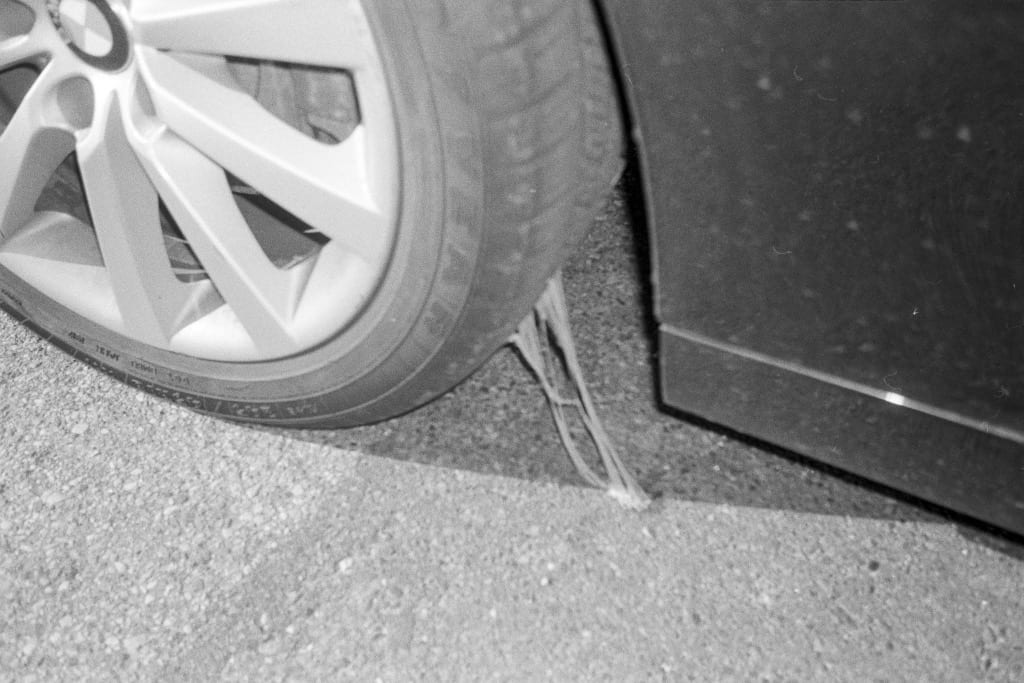 Gum
Gum
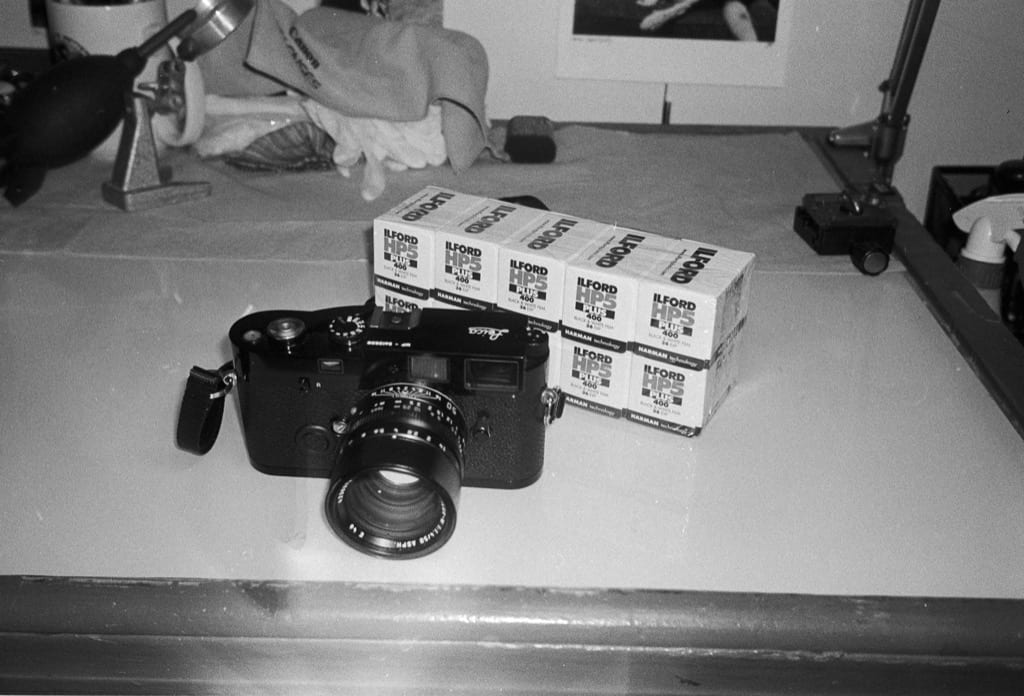 Leica MP with some film
Leica MP with some film
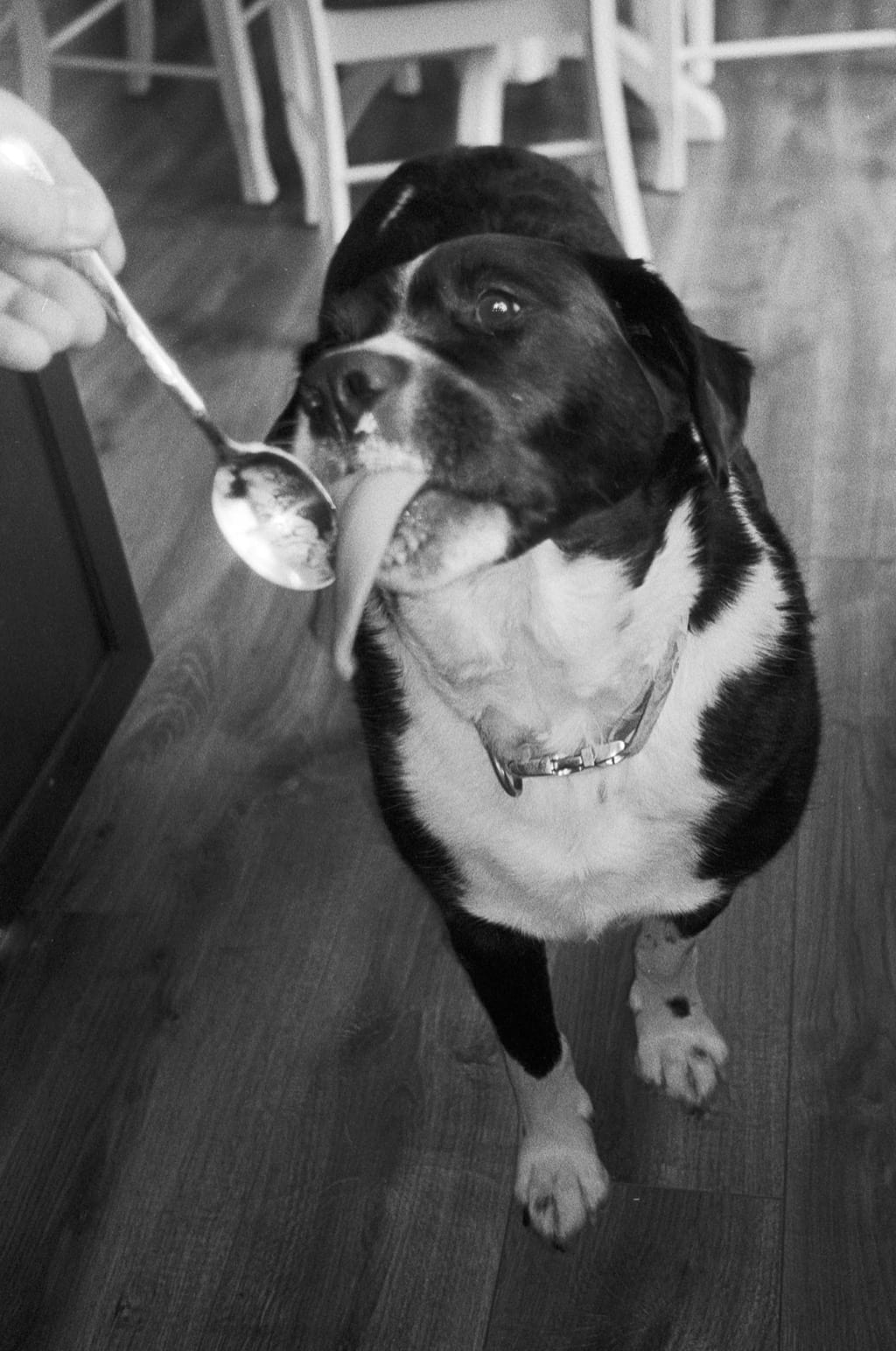 Alice
Alice
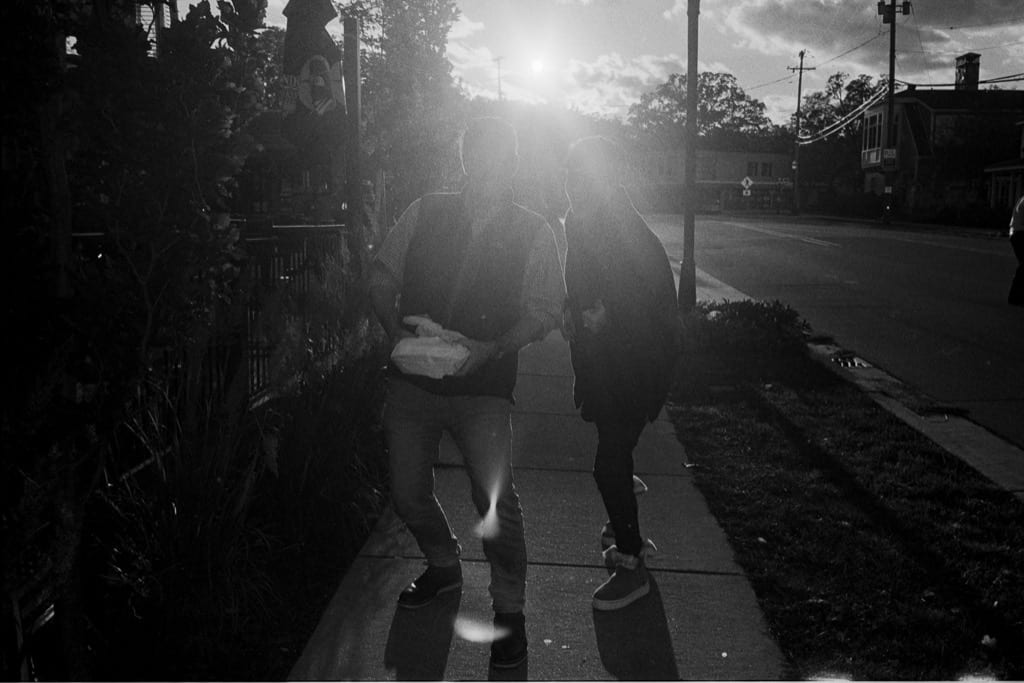 It flares just a little
It flares just a little